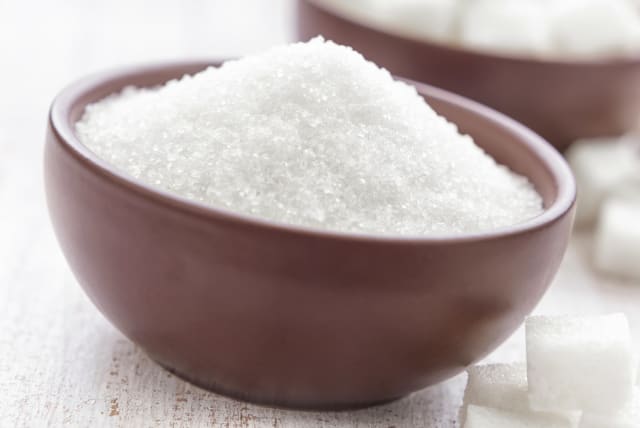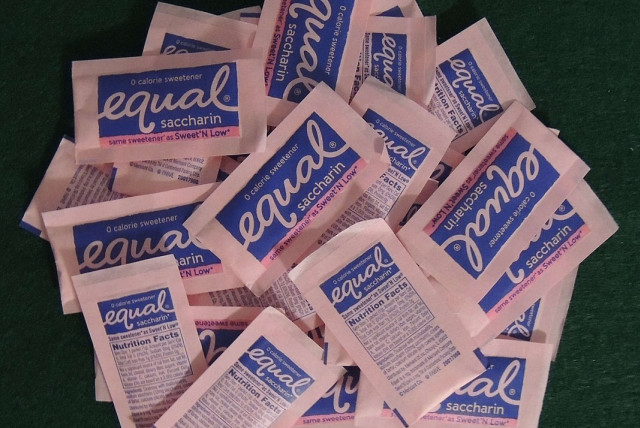Non-sugar sweeteners ineffective for weight loss - WHO

Sugar should also be avoided, the WHO said, but the use of non-sugar sweeteners (NSS) poses an increased risk of type-2 diabetes, cardiovascular diseases and mortality in adults.
The World Health Organization (WHO) issued a 74-page report on Tuesday declaring that artificial sweeteners not only fail to reduce weight and body fat in adults and children but do not reduce the risk of chronic disease and may also have undesirable effects on health from long-term use.
Sugar should also be avoided, said the guideline, but the use of non-sugar sweeteners (NSS) poses an increased risk of type-2 diabetes, cardiovascular diseases and mortality in adults. Instead, it advised people around the world to “consider other ways to reduce free sugars intake such as consuming food with naturally occurring sugars like fruit, or unsweetened food and beverages.”
Common NSS “include acesulfame K, aspartame, advantame, cyclamates, neotame, saccharin, sucralose, stevia and stevia derivatives,” it wrote. But in the whole report, it did not give any specific facts on stevia, a natural plant and widely used food additive that the Health Ministry in Jerusalem approved for consumption 11 years ago. The WHO report did say that two randomized controlled studies (RCTs) conducted in children reported lower indicators of dental cavities with use of stevia.
“NSS are not essential dietary factors and have no nutritional value. People should reduce the sweetness of the diet altogether, starting early in life, to improve their health,” declared Francesco Branca, WHO director for nutrition and food safety.
High intake of free sugars has been linked to overweight and obesity, which affects nearly 40% of the global adult population and millions of children, and, in turn, diet-related chronic diseases, which are leading causes of death worldwide, the WHO asserted.
Israel's Health Ministry declined to comment when asked for one by The Jerusalem Post.
What else did the WHO review of non-sugar sweeteners say?
The WHO’s systematic review of randomized controlled and observational studies that assessed the health effects of NSS use in adults, children and pregnant women identified 283 unique studies. Only studies in which NSS were consumed in amounts were included in the systematic review. The systematic review included 45 RCTs conducted in adults, four in children and one including both adults and children
The WHO said its recommendations apply to “all people except individuals with pre-existing diabetes and includes all synthetic and naturally occurring or modified non-nutritive sweeteners that are not classified as sugars found in manufactured foods and beverages or sold on their own to be added to foods and beverages by consumers… Providing guidance on the management of diabetes in individuals with pre-existing diabetes is beyond the scope of this guideline.”
The report also does not apply to personal care and hygiene products containing NSS, such as toothpaste, skin cream, and medications or to low-calorie sugars and sugar alcohols (polyols) that are sugars or sugar derivatives containing calories and are therefore not considered NSS.
The advisory is part of a collection of existing and forthcoming guidelines on healthy diets that aim to establish lifelong healthy eating habits, improve dietary quality and decrease the risk of non-communicable diseases worldwide, the WHO concluded.
Jerusalem Post Store
`; document.getElementById("linkPremium").innerHTML = cont; var divWithLink = document.getElementById("premium-link"); if (divWithLink !== null && divWithLink !== 'undefined') { divWithLink.style.border = "solid 1px #cb0f3e"; divWithLink.style.textAlign = "center"; divWithLink.style.marginBottom = "15px"; divWithLink.style.marginTop = "15px"; divWithLink.style.width = "100%"; divWithLink.style.backgroundColor = "#122952"; divWithLink.style.color = "#ffffff"; divWithLink.style.lineHeight = "1.5"; } } (function (v, i) { });

